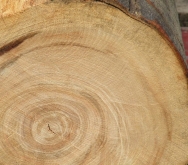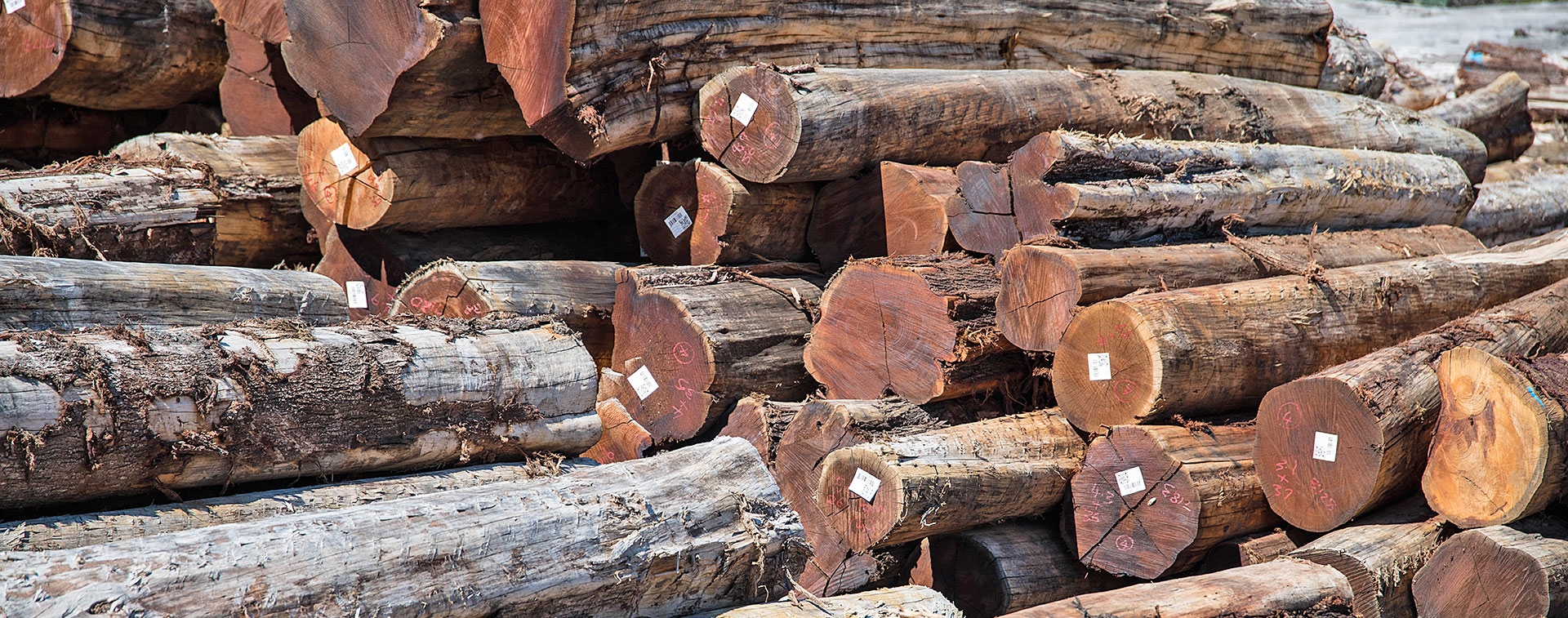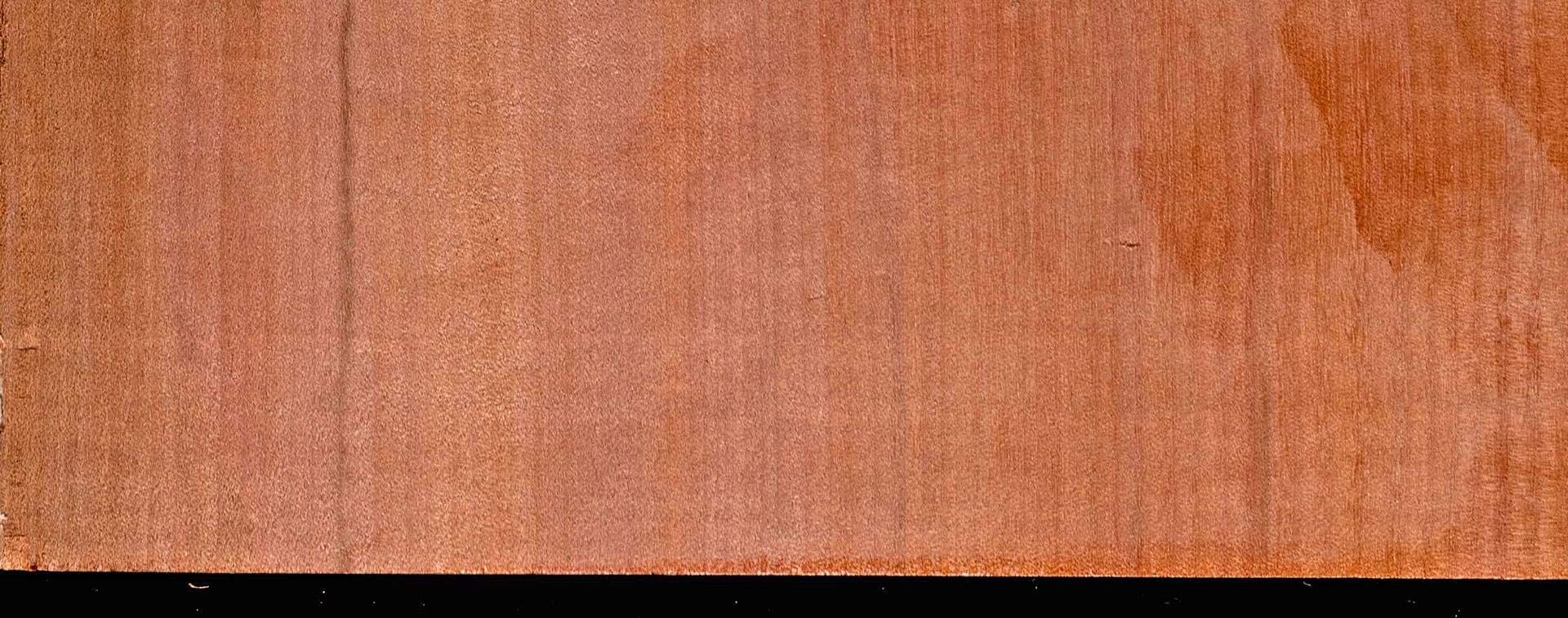These trees / bushes listed below are intermittently salvaged from logging operations when their size, quality and value make their processing and sale feasible.
Tea tree (or Ti tree), Leptospermum spp, grow into small diameter trees in thick stands on poorly drained forest sites across the state.
Tea tree logs are harvested from eucalypt coupes and can be milled into small sizes; the wood is dense, tough and has attractive grain with highly variable colouration patterns.
IST Geeveston receives tea tree logs intermittently and sells these direct and as selected pieces in the regular log tenders. Sawn timber is also available in limited quantities at IST Geeveston.
Musk Olearia argophylla, grow a small tree trunk from a lignotuber (root burl) which contains highly figured burl wood. In Tasmania’s colonial years musk burls were sawn or sliced into exquisite feature pieces for jewellery boxes, table tops and marquetry. STT intermittently salvages musk burls and trunks from harvest areas for IST Geeveston, provided their size and quality is high.
Banksia (Banksia spp), She Oak (Allocasuarina spp), Hakea (Hakea spp). When large enough, the sawn timber from these species can reveal a unique cell like pattern in the grain. Logs from these trees must be promptly sawn into boards and slowly dried to avoid degradation from splitting and warping. Material from these trees is ocaisionally available from IST Geeveston.
Horizontal, Anodopetalum biglandulosum, is a unique plant which grows in wet sites and high rainfall areas in Tasmania’s western and southern forests. Most horizontal seedlings grow a thin vertical trunk for a few metres before falling down and then growing new vertical stems along the now horizontal trunk, then repeat this process many times until a ‘horizontal’ thicket has developed.
Horizontal stems, while growing vertically, are fairly straight, their wood is very strong, it has a very fine texture and low shrinkage. The smooth mottled dark brown bark stays tight on pieces less than five centimetres in diameter. Harvesting pieces from horizontal areas by hand, provided the main root stock is not taken or damaged, is equivalent to pruning and new vertical stems regrow in a few years. Since most oldgrowth wet forests were reserved in 2014 few substantial areas with horizontal scrub are available for harvesting.
Certification
Island Specialty Timbers at Geeveston is a licensed Chain of Custody member, FTT CoC 08005, Accreditation number 101091, which is your guarantee that all our raw material and products are sourced from forests whose management is certified to the Australian Forestry Standard (AFS). The AFS is internationally recognised, under the Programme for the Endorsement of Forest Certification, as being an independent assurance of legal and sustainable timber supply.



